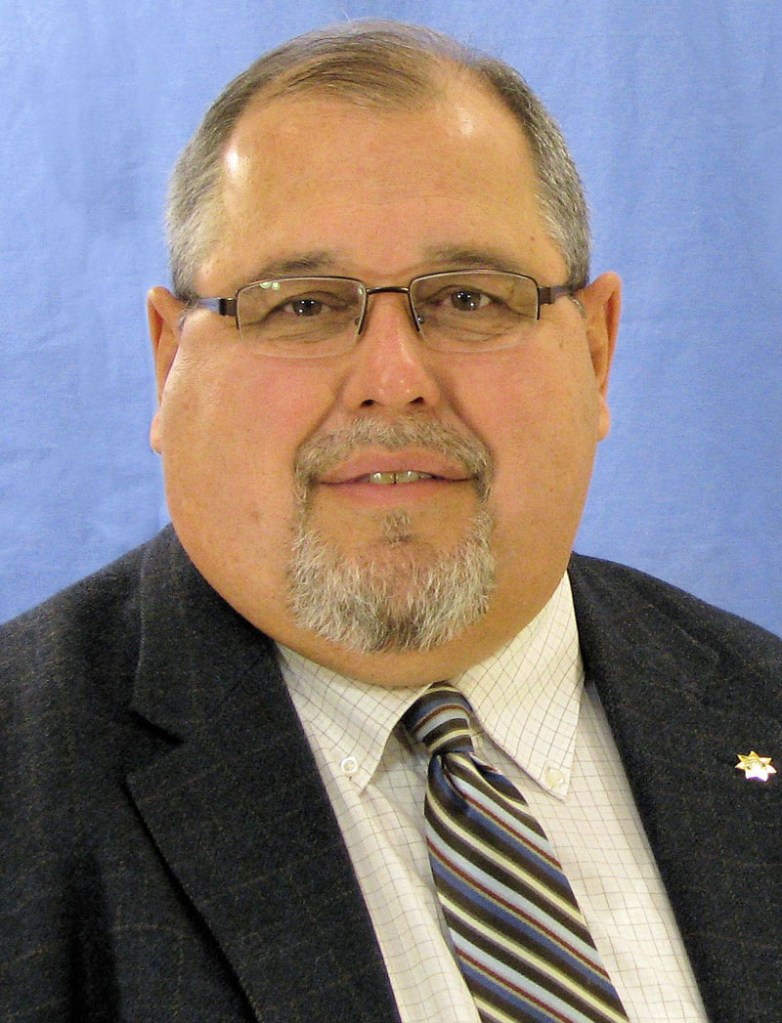A state representative and former Cumberland County sheriff has quit the board of the state’s largest medical marijuana nonprofit organization.
Rep. Mark Dion, D-Portland, tendered his resignation from the board of Northeast Patients Group June 8, citing tensions between state and federal policy, though he also mentioned his workload as a first-term legislator and the rigors of opening a new law office in Portland.
Last July, in a Portland Press Herald profile before his first board meeting, Dion said he found it important “to instill public confidence and immediately open a line of communication” with sheriffs and police chiefs who still oppose medical marijuana.
Asked Wednesday if his original goals were realized, Dion said no.
“To say otherwise would not be candid,” he said.
Dion’s other goals as a board member included helping Northeast engineer “a security plan, not just for protecting the product, but also for screening prospective staffers,” the article said.
Those conversations happened, he said, but were always ongoing and never finalized.
He approached Northeast Patients Group Executive Director Becky DeKeuster last winter to resign, Dion said. But she urged him to take a leave of absence instead. He did, but changed his mind in June.
Public disclosure of Dion’s resignation comes as Northeast Patients Group — which holds monopoly licenses to run half the state’s newly minted marijuana dispensaries, including in its largest markets, Portland, Bangor and Augusta — continues to struggle operationally.
The departure also adds to a major shakeup within the organization. Last week, the Kennebec Journal reported former NBA and Maine Central Institute basketball player Cuttino Mobley had inked a $2 million deal wiith DeKeuster — making him Northeast’s largest investor, with significant operational responsibility.
The moves also highlight confusion over the state’s regulatory boundaries when it comes to medical marijuana. The state approved Northeast for licenses under one set of personnel and promises, but those elements have shifted significantly. And the group has yet to open a dispensary.
It’s still unclear whether the state will accept the Mobley deal.
On Wednesday, Catherine Cobb, director of the Maine Department of Health and Human Services’ Division of Licensing and Regulatory Services, wrote a letter to the Kennebec Journal saying Northeast wants to keep the financing agreement between it and Mobley confidential, as a “trade secret.”
The Kennebec Journal has requested the document, which Cobb said arrived last Friday.
Cobb said her office is giving Northeast two weeks to prove the Mobley document should be kept secret. If they do not, the Kennebec Journal will receive it Aug. 4.
DeKeuster told the Bangor Daily News in March she expected all four dispensaries — slated for Portland, Thomaston, Kennebec County and the Bangor area — to be open by this month.
But none are. The only thing up and running for Northeast Patients Group is a growing operation in Thomaston, where a dispensary is sited but not yet open. The growing center opened in June and, if the four dispensaries open, it will supply them.
In Kennebec County, the group has not secured a dispensary location in Augusta and has faced a moratorium and citizen resistance in Waterville.
As other dispensaries started opening in Maine, members of the Northeast board questioned why its own progress was slow, Dion recounted.
But he said he didn’t have answers.
“I didn’t,” he said. “Simple questions can sometimes have complicated answers. When I saw the dispensaries come up, I was intrigued — curious that (other dispensary operators) could answer those questions so quickly.”
He said a complex issue, with “latent hesitancy” on the part of municipal officials, is slowing Northeast’s efforts.
The Mobley agreement sparked a lawsuit against Northeast and DeKeuster in Cumberland County Superior Court.
Filed by Berkeley Patients Group, Northeast’s former backer, the complaint alleges DeKeuster used confidential information to make an agreement with Mobley and didn’t repay a $632,195 cash loan from Berkeley.
The lawsuit also asks that DeKeuster be removed from her position with Northeast.
DeKeuster worked for Berkeley while directing expansion efforts in Maine. She has repeatedly declined requests for comment since the lawsuit became public.
Marijuana is an illegal drug in the eyes of the federal government. But medical marijuana is legal in 16 states and the District of Columbia.
That ambiguity has led to confusion in the medical marijuana industry. A 2009 memo to U.S. Attorneys said the feds “should not focus federal resources” on “individuals whose actions are in clear and unambiguous compliance with existing state laws providing for the medical use of marijuana.”
But on June 29, Deputy U.S. Attorney General James M. Cole wrote “persons who are in the business of cultivating, selling or distributing marijuana, and those who knowingly facilitate such activities, are in violation of the Controlled Substances Act, regardless of state law.”
Dion said many board conversations revolved around “those broad policies.”
Now, Dion is working in his Portland law office, often with registered marijuana patients.
He said there is a schism within the community — many want dispensaries open, many want to stick to growing their own, or getting marijuana from a trusted caregiver.
The latter group follows the money.
“They see dispensaries as a retail effort, like what we see in a traditional pharmacy, or big pharma,” Dion said.
Northeast Patients Group’s website still listed Dion as a board member Wednesday.
Michael Shepherd — 621-5662
mshepherd@mainetoday.com
Send questions/comments to the editors.



Comments are no longer available on this story